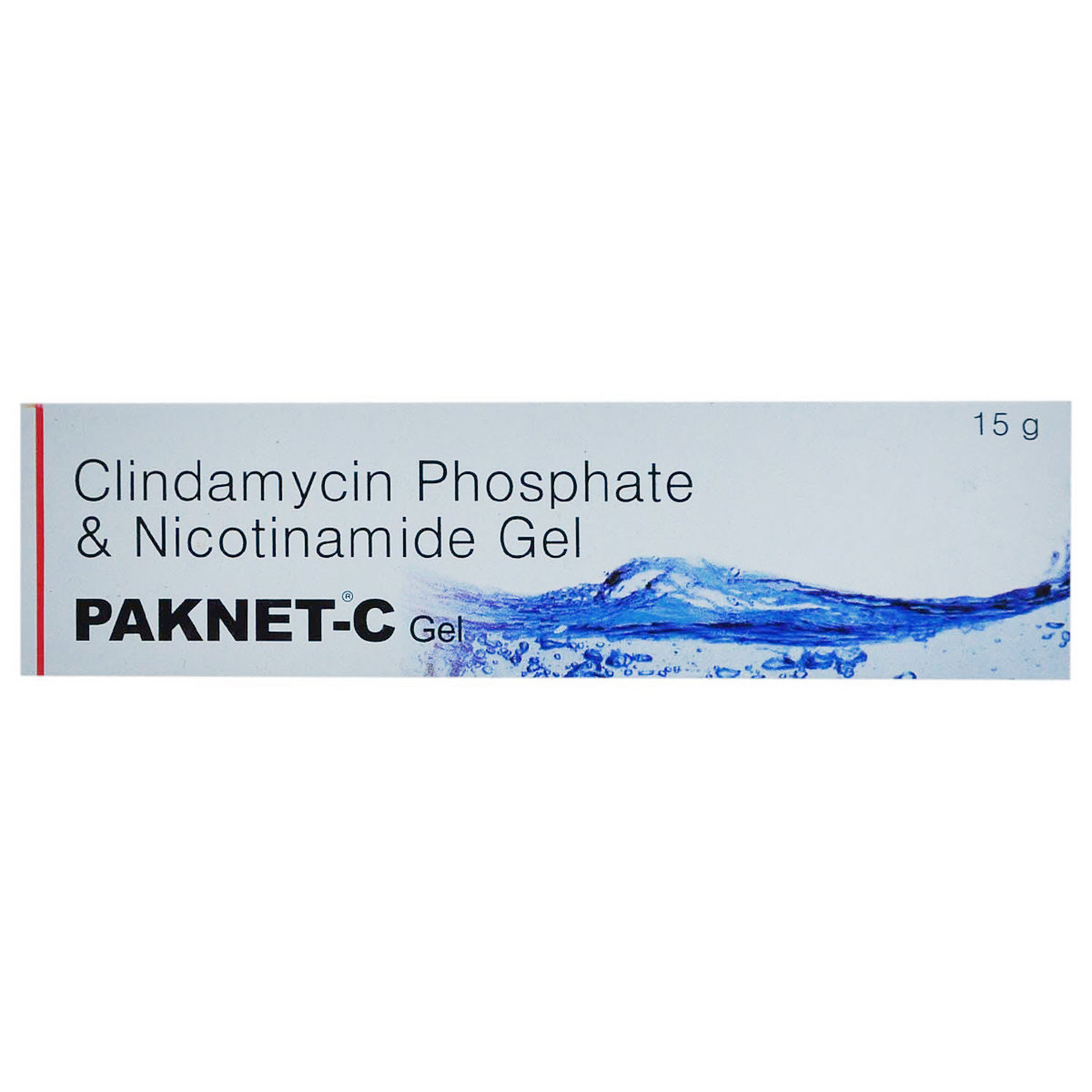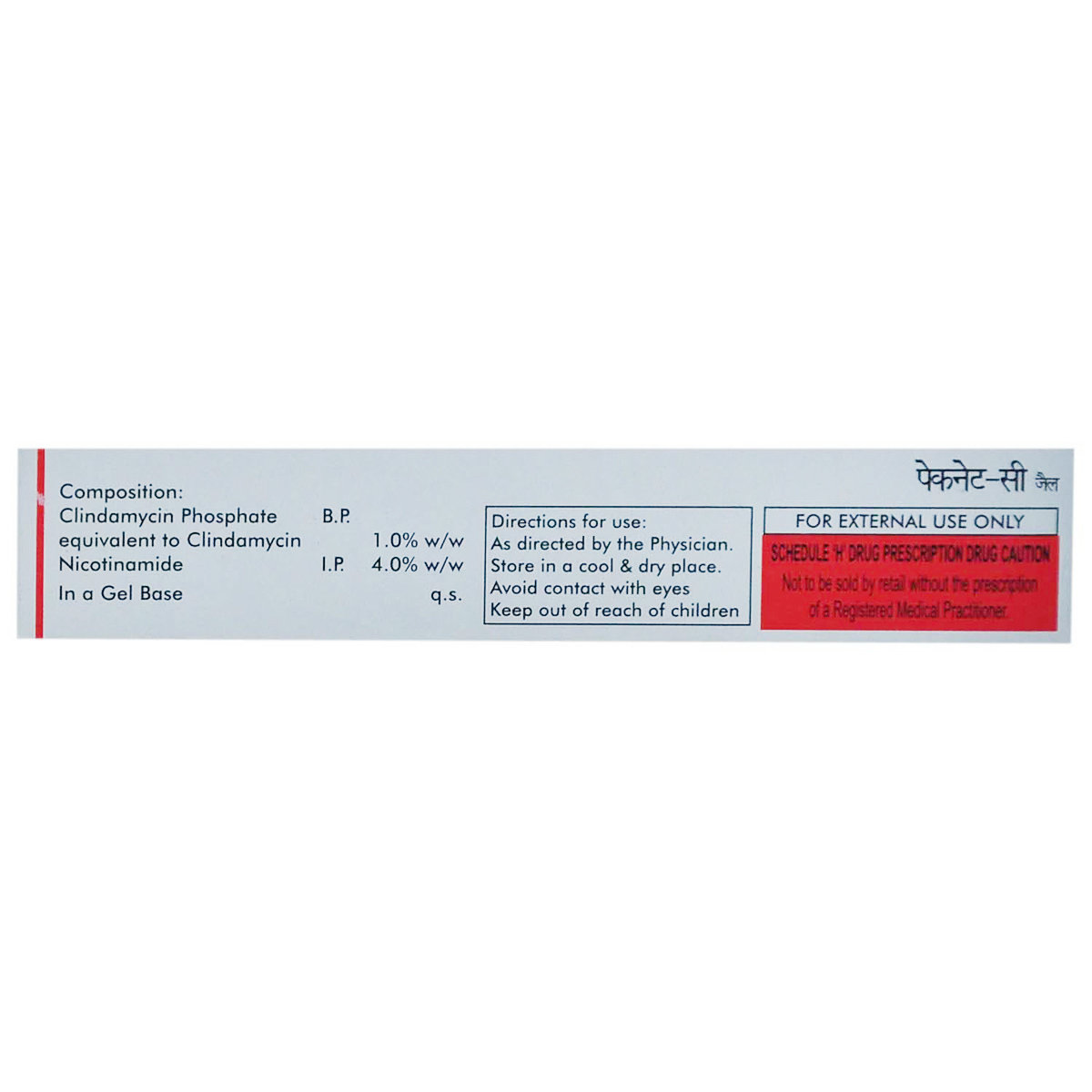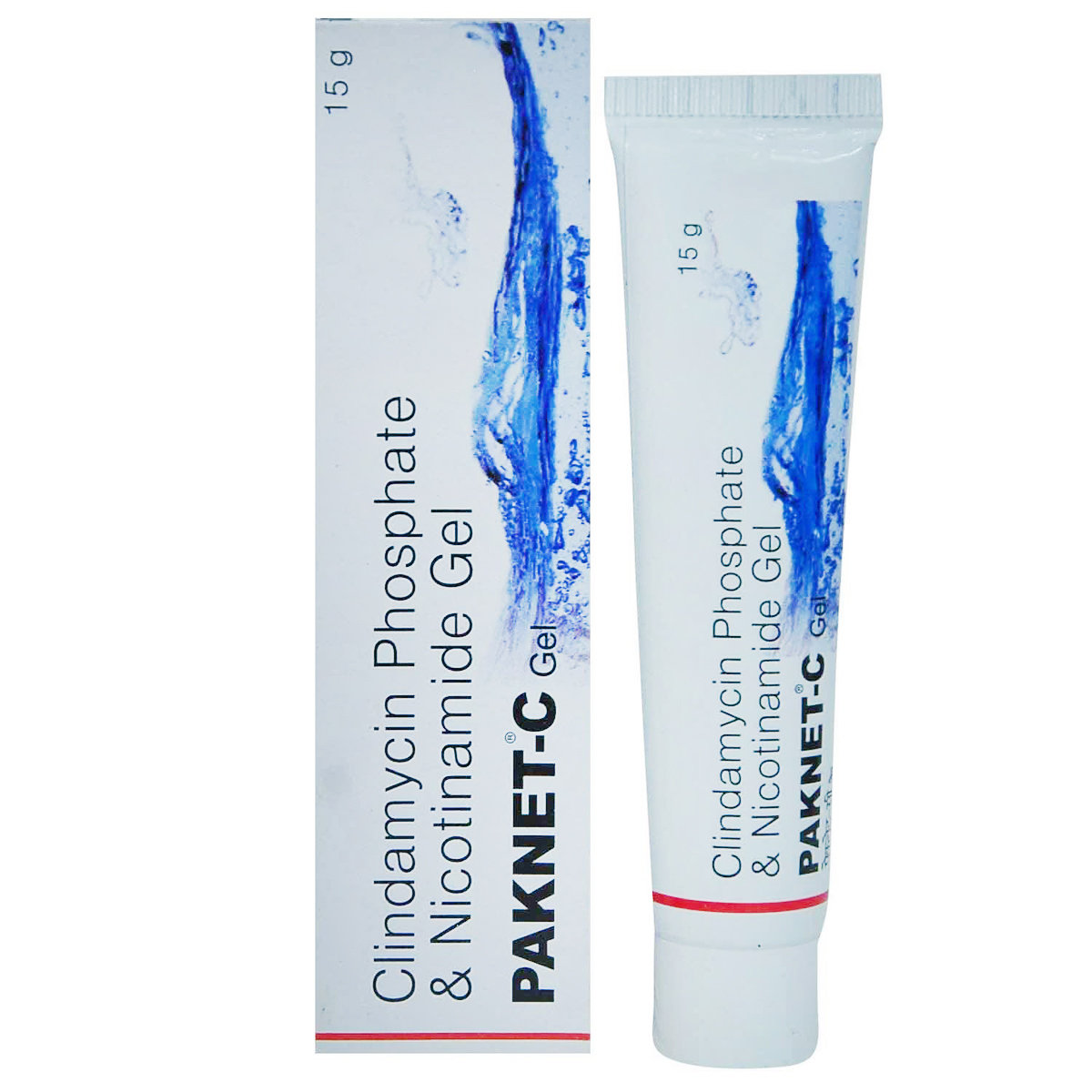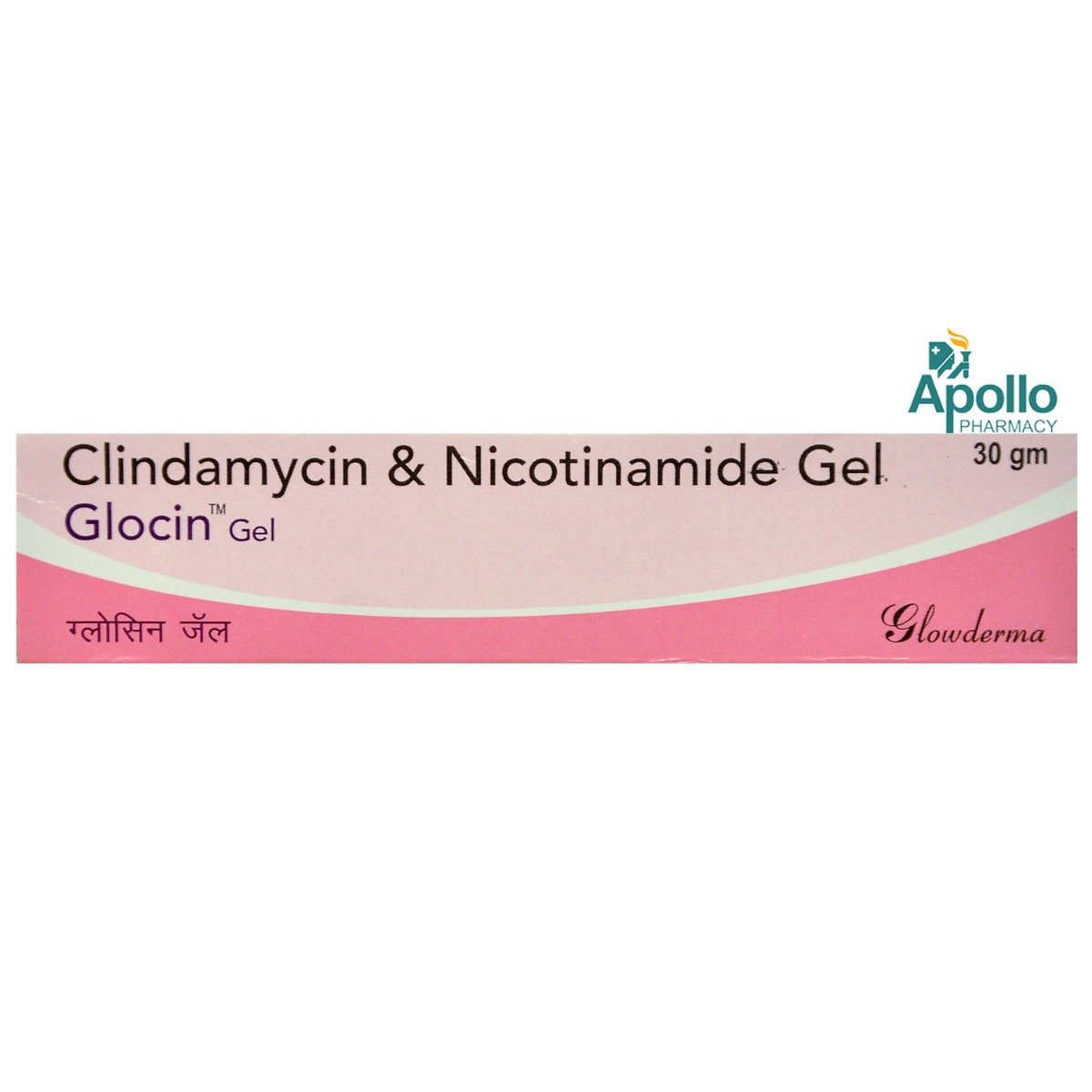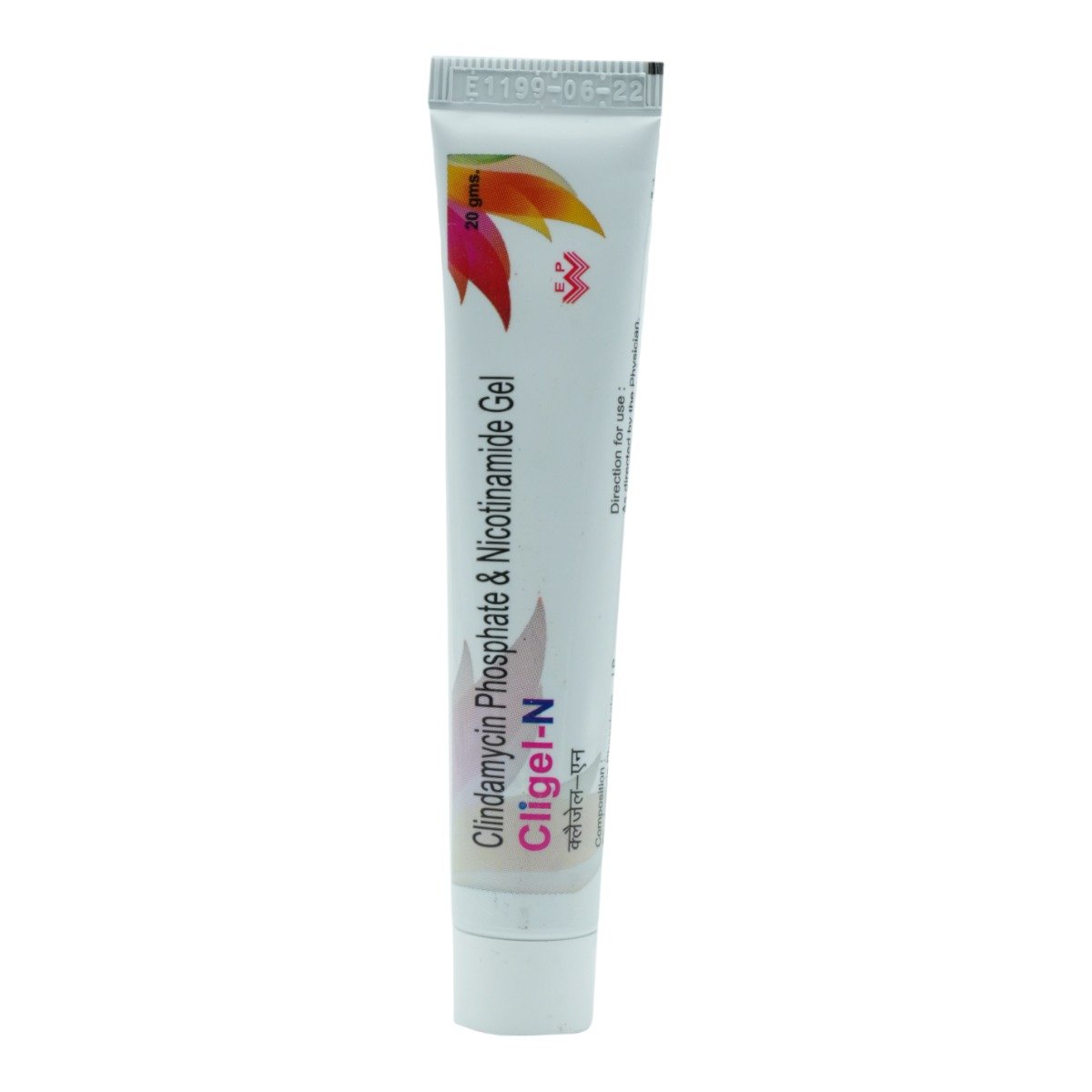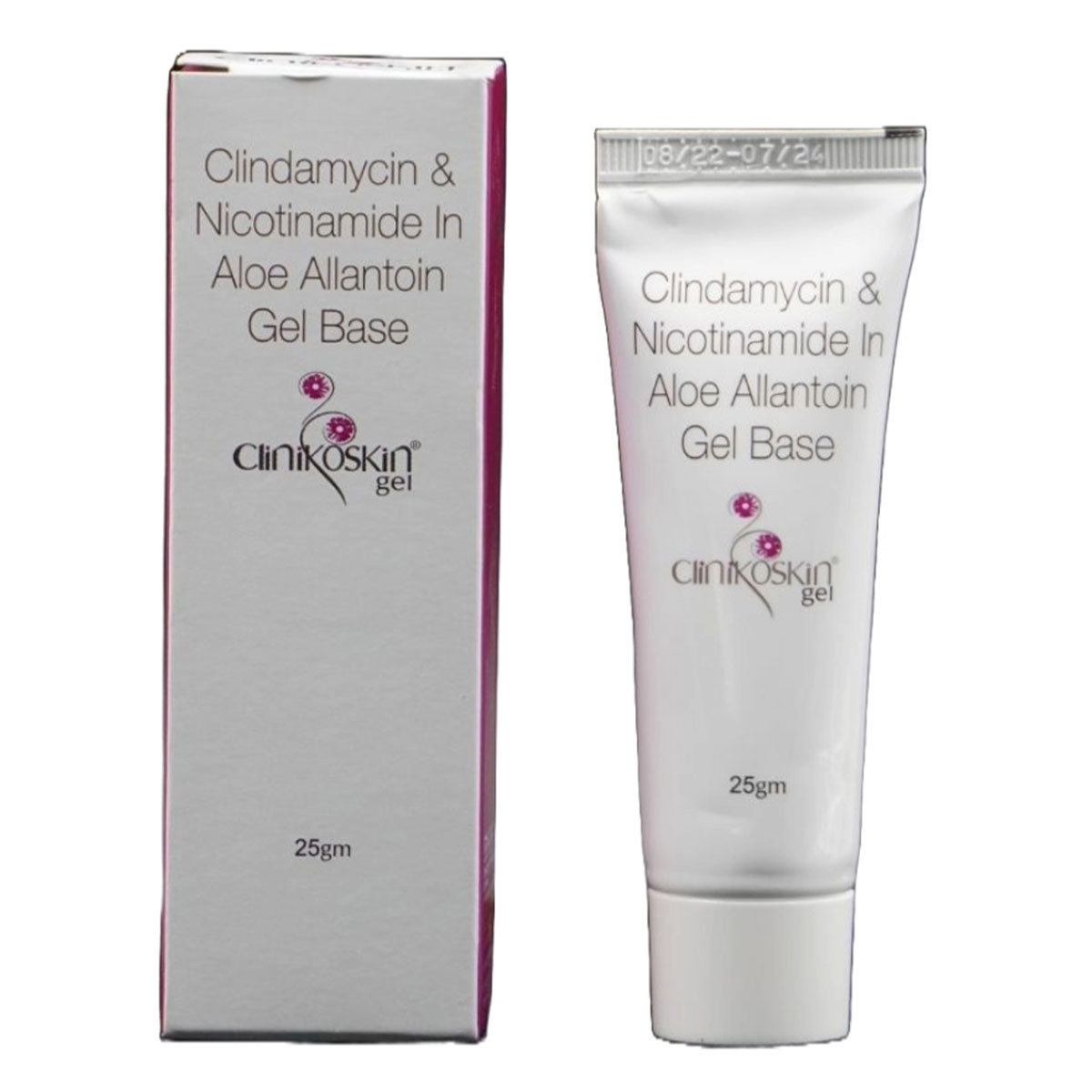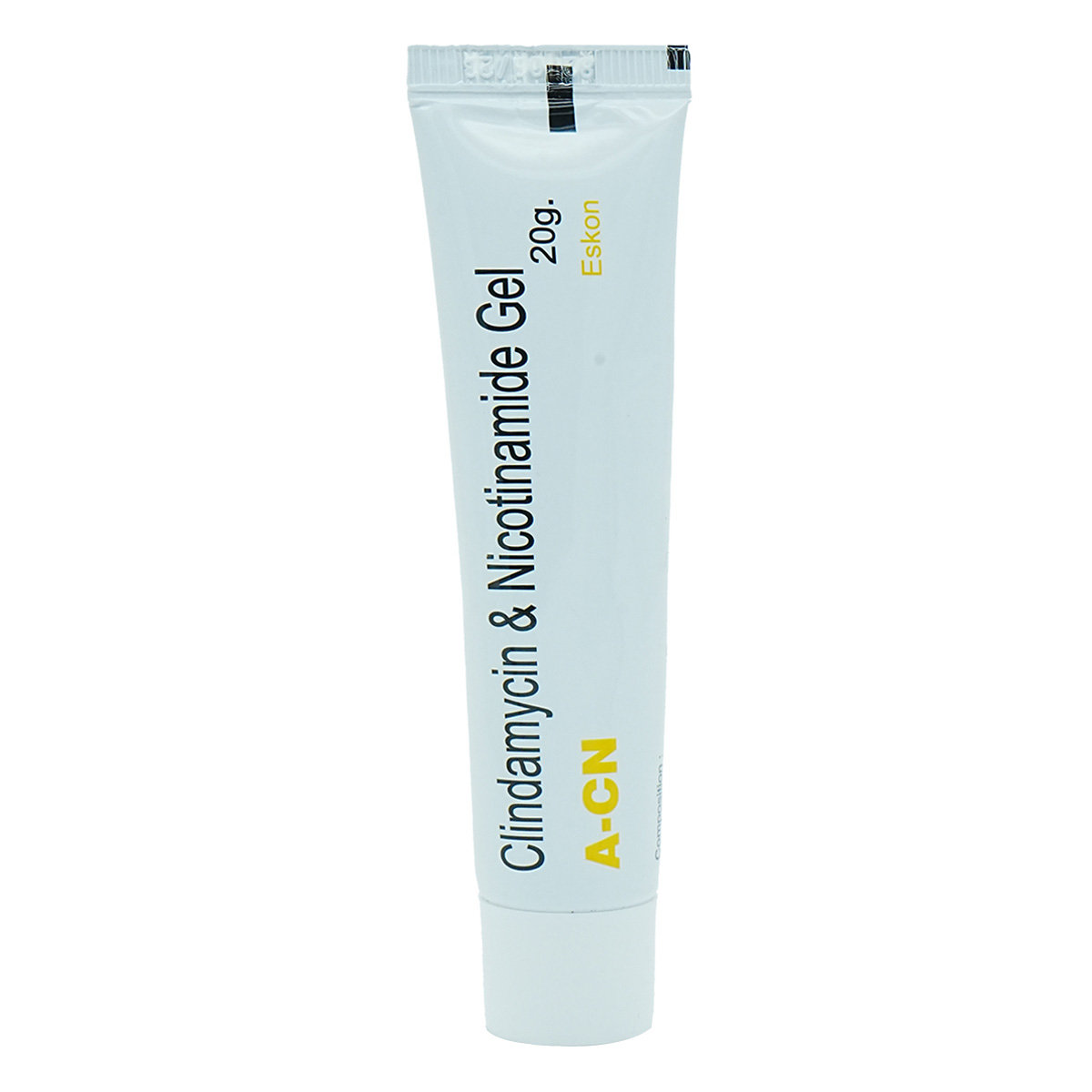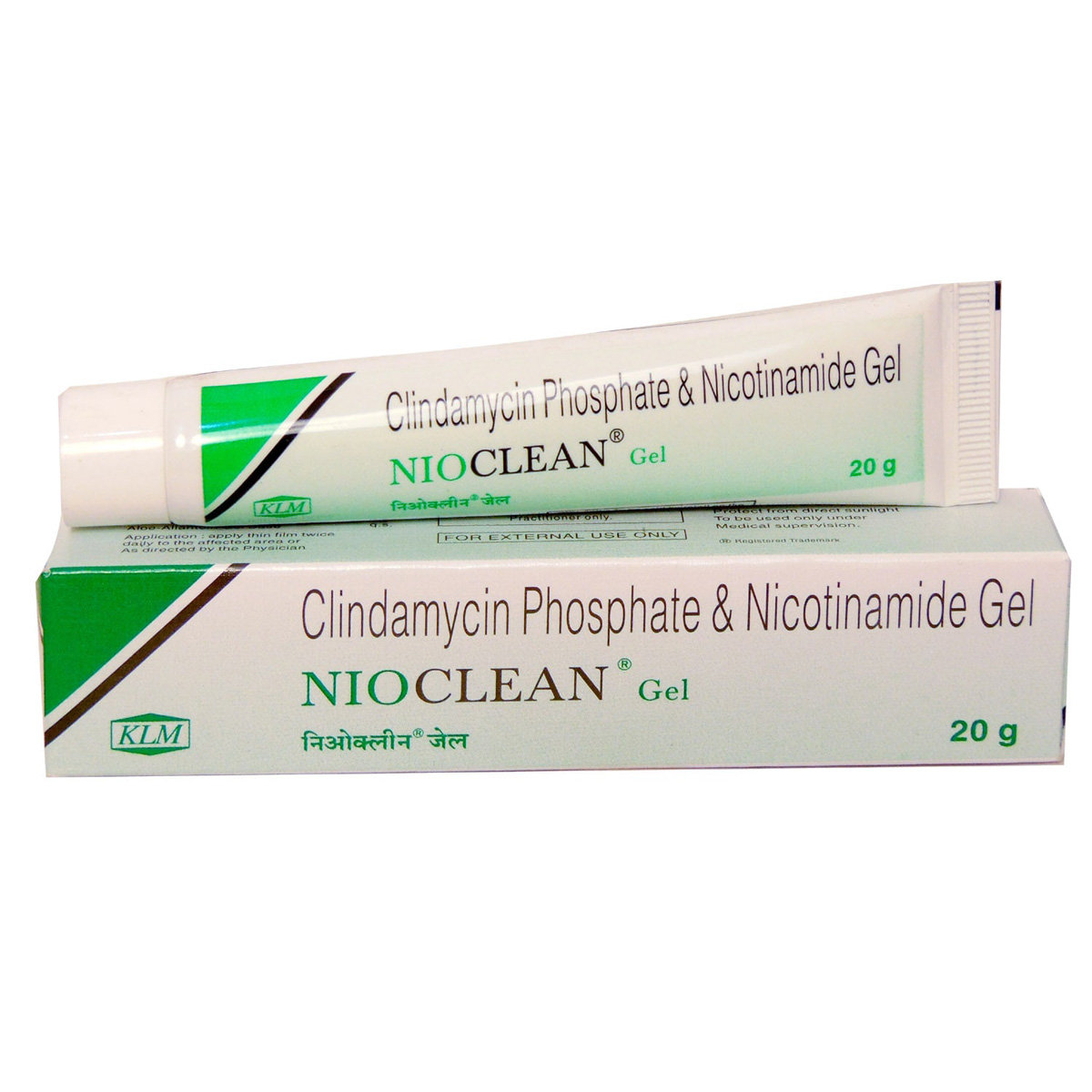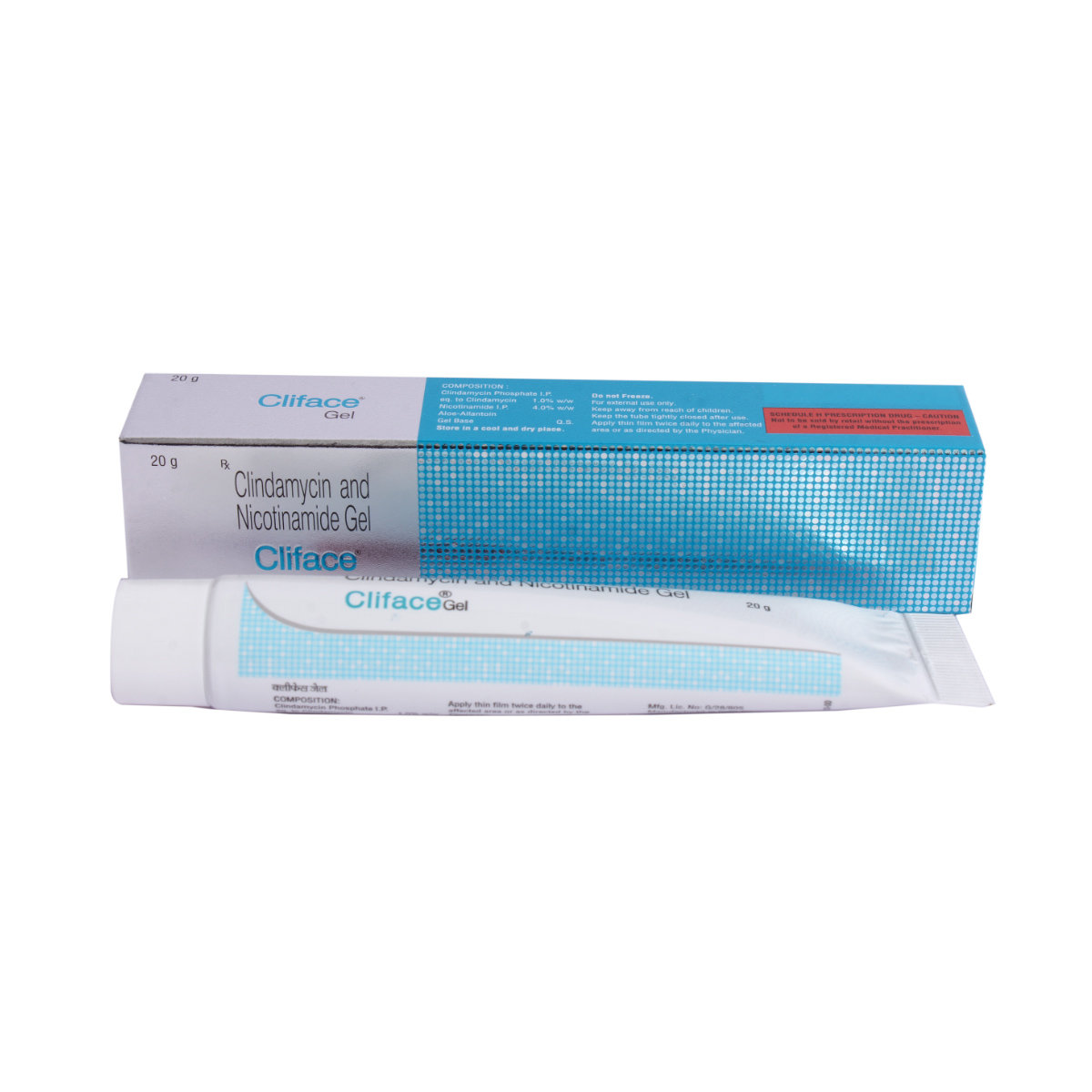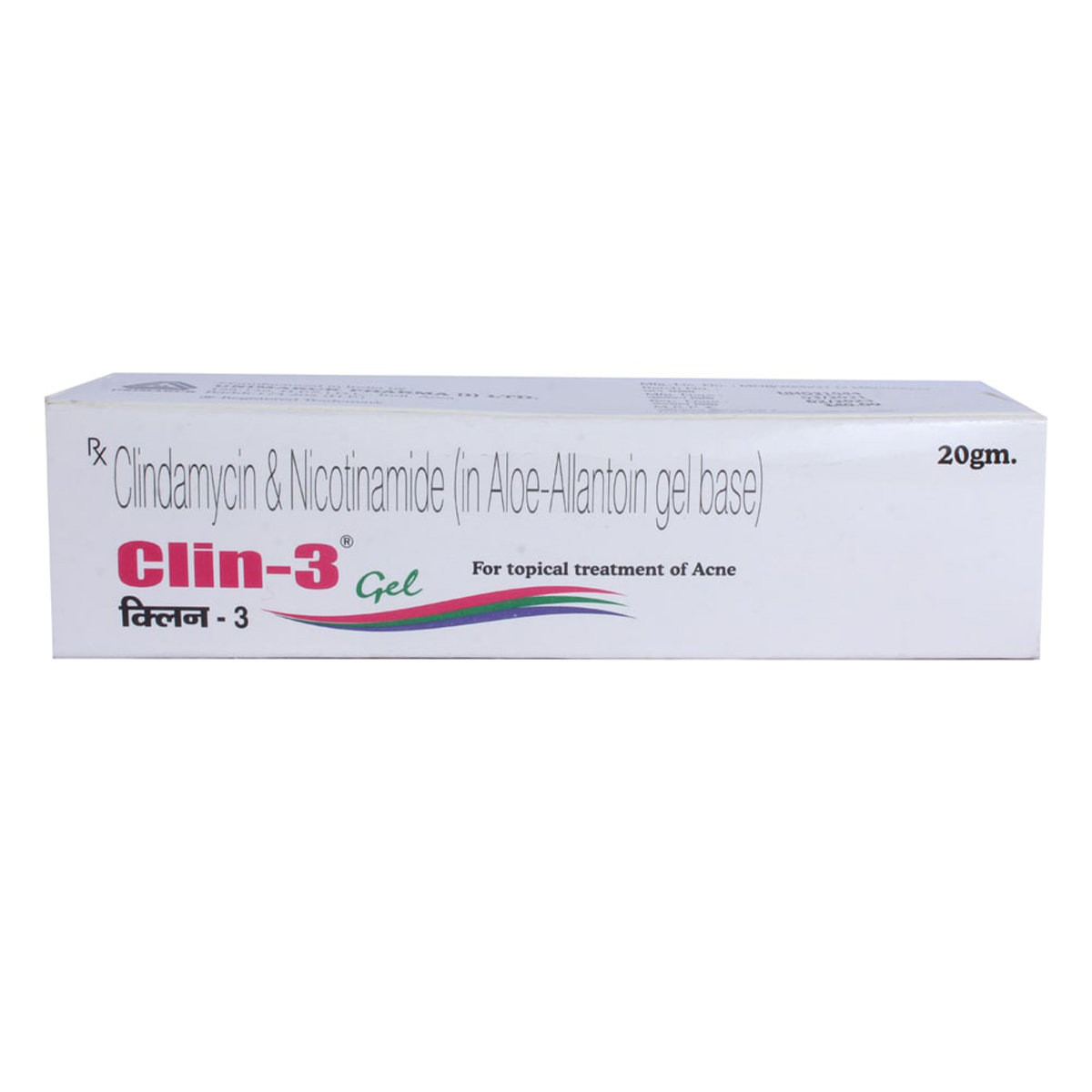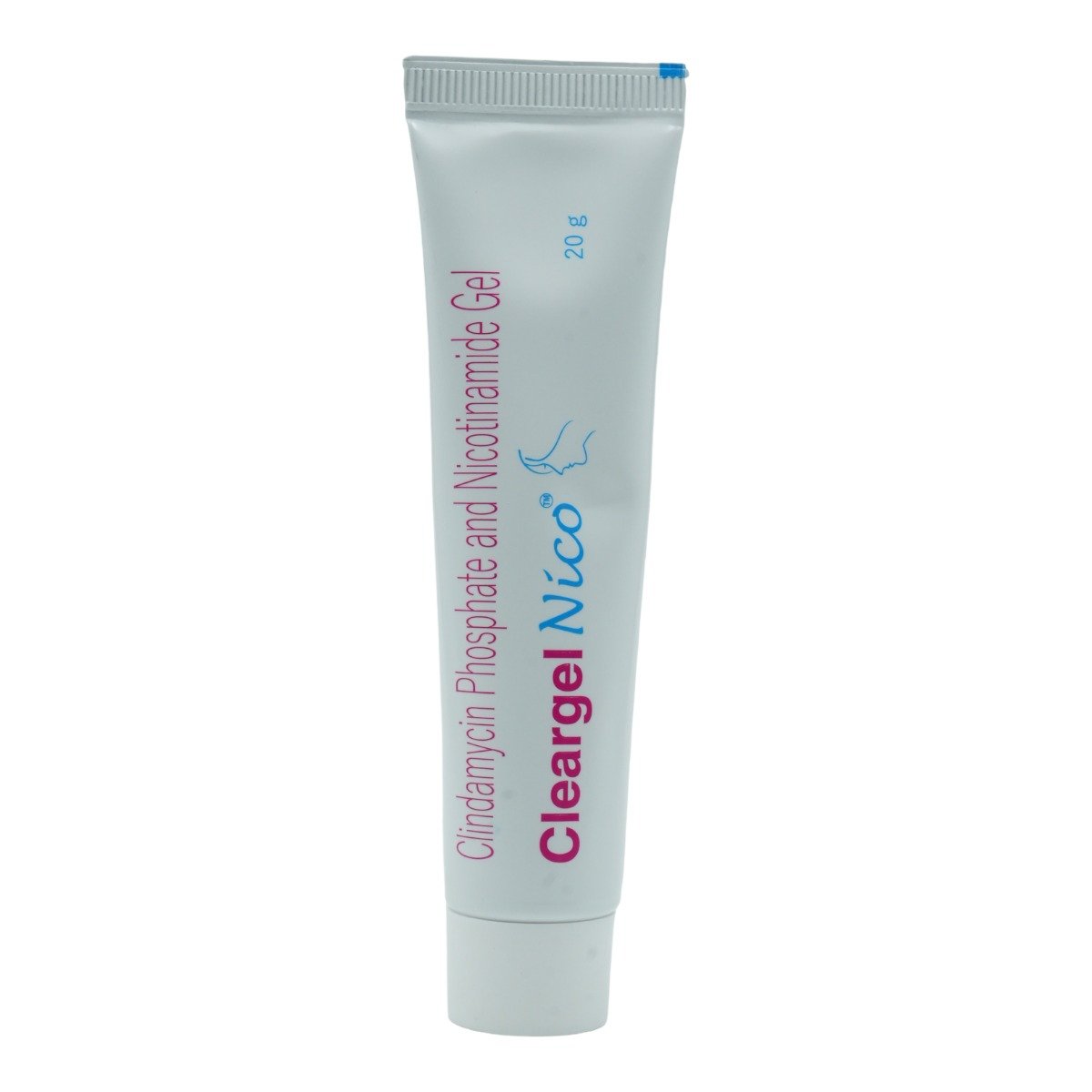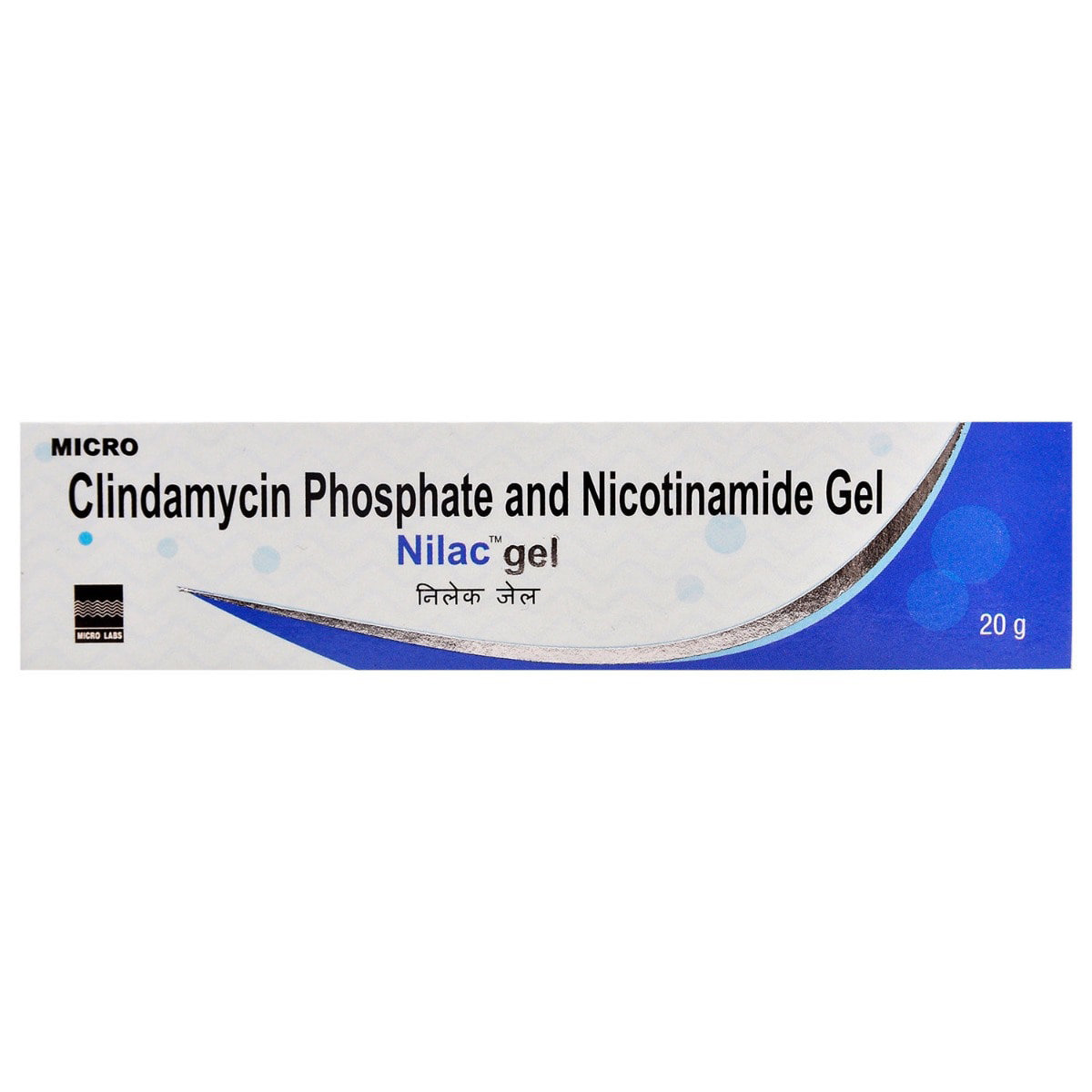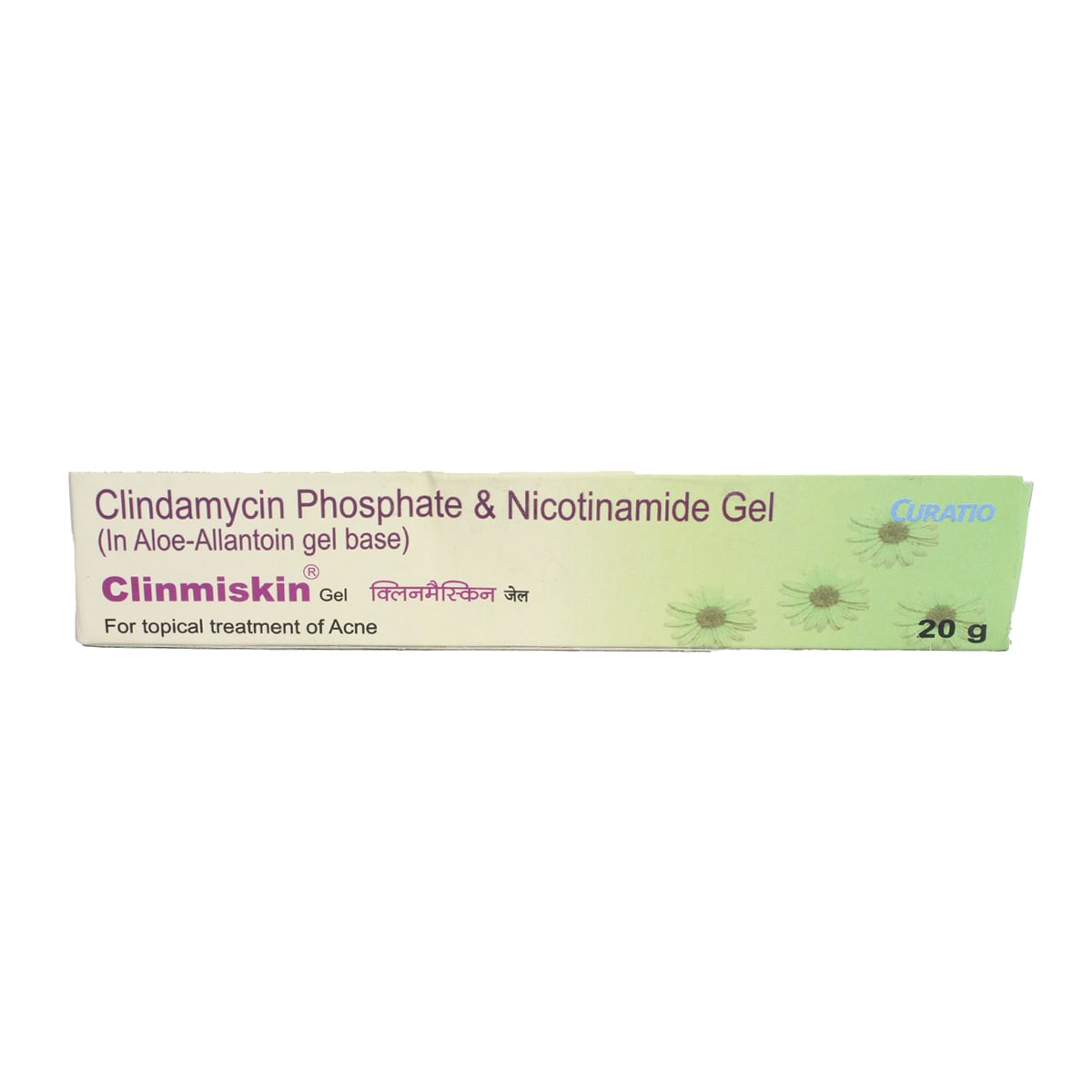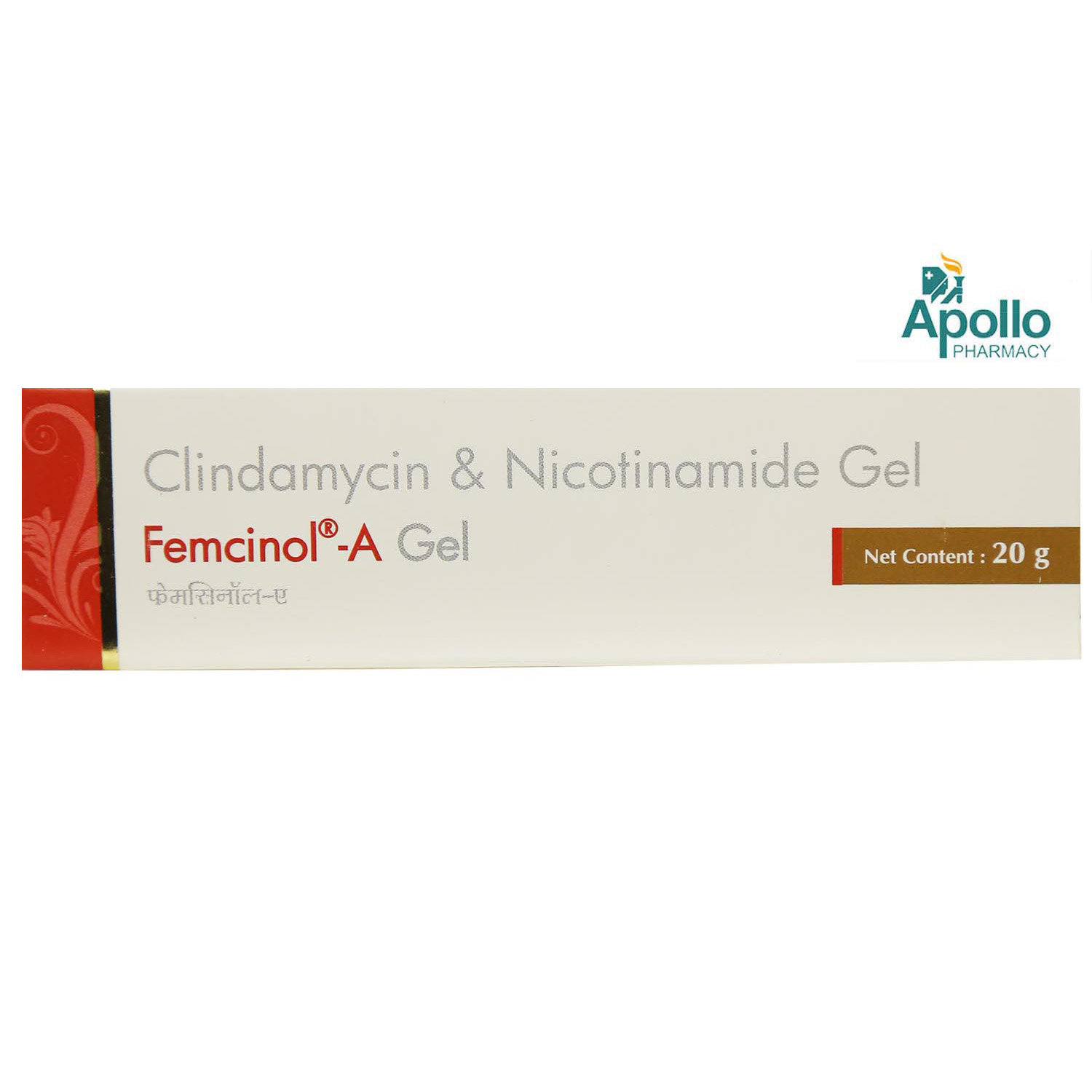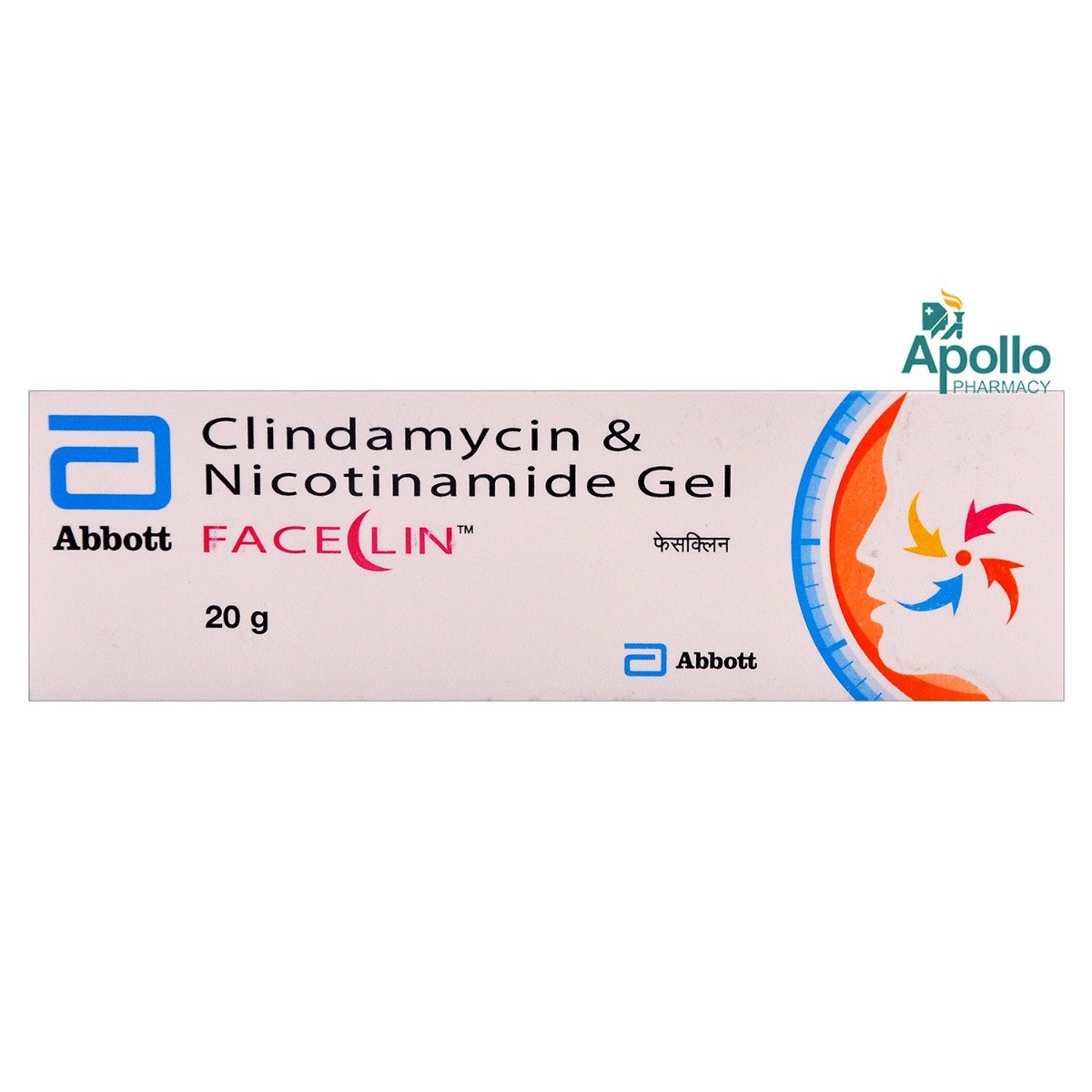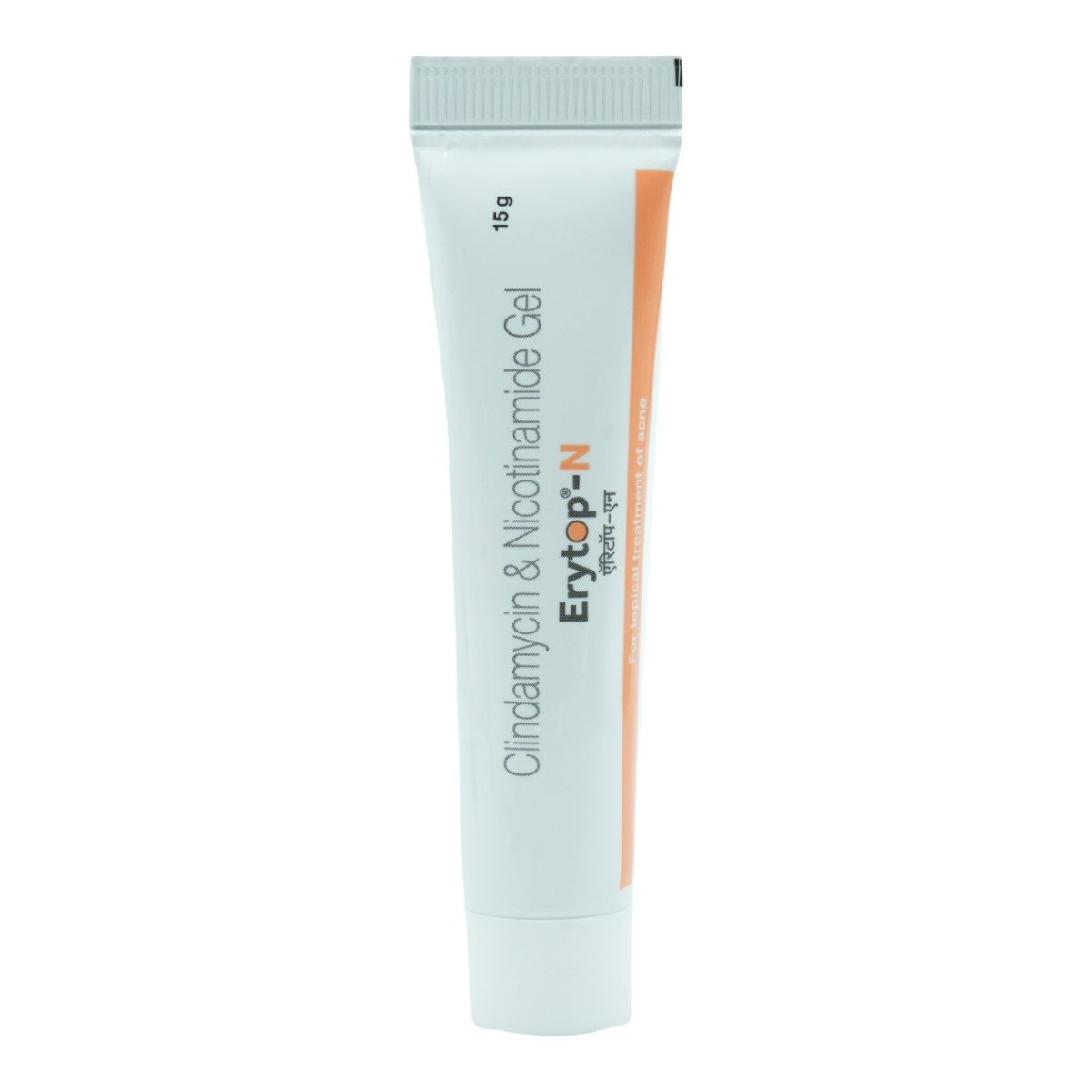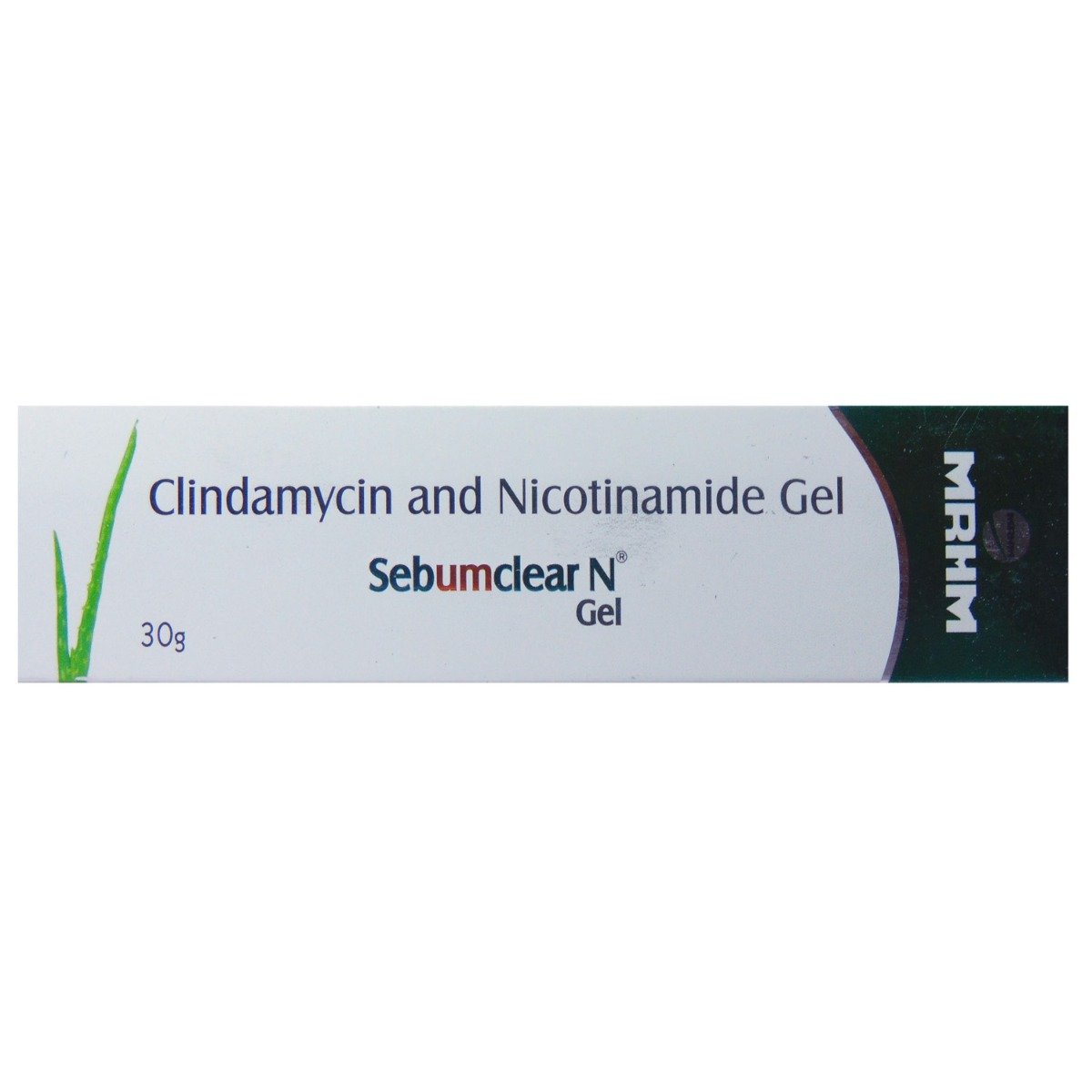Paknet C Gel 15 gm
MRP ₹103
(Inclusive of all Taxes)
₹15.4 Cashback (15%)
Provide Delivery Location
Online payment accepted
 Prescription drug
Prescription drugWhats That
Composition :
Manufacturer/Marketer :
Consume Type :
Expires on or after :
Return Policy :
About Paknet C Gel
Paknet C Gel belongs to the class of antibiotic known as lincomycin antibiotics that works by preventing or stopping the bacterial growth. This combination medicine is primarily used to treat inflamed acne. It minimizes the formation of excessive natural oil known as sebum. It also reduces swelling caused due to acne. Acne is a skin related problem in which oils glands (sebaceous gland) of the skin become clogged, thereby forming pimples and sometimes cysts.
Paknet C Gel is composed of two medicines namely: Clindamycin and Nicotinamide. Clindamycin is a lincomycin antibiotic that acts by penetrating inside the skin and helps in killing the acne-causing bacteria. On the other hand, Nicotinamide is a form of vitamin B which is responsible for exerting anti-inflammatory effects that are applied to the skin. Together it helps to reduce the swelling, redness and tenderness caused due to acne or pimple. Besides this, it also prevents the formation of pimples, blackheads and whiteheads on the skin.
Paknet C Gel should be used in the quantity advised by the doctor. It is only meant for external use. It should be applied in sufficient quantity enough to cover the affected area. Wash your hands before and after using this medicine. If accidentally it gets in contact with your eyes, nose, mouth or any other sensitive areas, immediately rinse it with water. In some cases, you may experience irritation, dryness, peeling, redness and burning sensation at the application site. Most of these side effects of Paknet C Gel do not require medical attention and gradually resolve over time. However, if the side effects are persistent, reach out to your doctor. It is advised to use a skin moisturizer and drink plenty of water to prevent side effects.
Do not stop using this medicine without consulting your doctor. Inform your doctor if you are pregnant or breastfeeding. Also, if you are allergic to this medicine, please tell your doctor. Avoid touching, picking or scratching the infected area to avoid worsening of the acne. It is advised to avoid unnecessary sun exposure and before stepping out in the sun, use sunscreen. Do not use any kind of cosmetic products or get any cosmetic procedures done in the affected area without consulting your doctor.
Uses of Paknet C Gel
Directions for Use
Key Benefits
Paknet C Gel is made of Clindamycin and Nicotinamide (Vitamin B3). Clindamycin is a well-known bacteriostatic antibiotic that treats acne, bacterial infection, scars suitable for both dry and wet skin. Topical application of clindamycin helps in the healing of acne by killing the acne-causing bacteria and prevents further bacterial skin infections. Nicotinamide is a synthetic form of Vitamin B3, that stimulates ceramide (fats found on the uppermost layer of the skin) synthesis and improves the epidermal permeability barrier functions, making skin look supple and soft.
Storage
- Apply moisturizer immediately after showering or bathing.
- Use a moisturizer containing lanolin, petroleum jelly, glycerine, hyaluronic acid or jojoba oil.
- Do not use hot water for bathing. Instead use warm water and limit showers and bath to 5 to 10 minutes.
- Apply a sunscreen with SPF-30 or higher.
- Avoid harsh soaps, detergents and perfumes.
- Do not scratch or rub the skin.
- Drink adequate water to prevent dehydration.
- Wear pants, full sleeves and a wide-brimmed hat while going out in the sun.
- Consult your doctor if you experience skin redness, itching, or irritation after taking medication.
- Your doctor may adjust your treatment plan by changing your medication or providing guidance on managing your erythema symptoms.
- Your doctor may recommend or prescribe certain medications to help alleviate symptoms.
- Apply cool compresses or calamine lotion to the affected skin area to reduce redness and itching.
- Stay hydrated by drinking plenty of water to help alleviate symptoms and keep your skin hydrated.
- Monitor your skin condition closely and promptly report any changes, worsening symptoms, or concerns to your healthcare provider.
- Stop taking the medication you suspect for causing a burning sensation and talk to your doctor about other treatment options.
- Use creams or ointments with corticosteroids on the affected area to help reduce swelling and itching.
- Stay out of the sun and avoid extreme temperatures, as they can make the burning sensation worse.
- Applying a cool compress to the area can help soothe it temporarily.
- Drink lots of fluids or water to keep your skin hydrated.
- Avoid harsh soaps, strong chemicals, hot water, and tight clothing that can irritate your skin.
- Eat foods that are high in antioxidants and omega-3 to help keep your skin healthy.
- Report the itching to your doctor immediately; they may need to change your medication or dosage.
- Use a cool, damp cloth on the itchy area to help soothe and calm the skin, reducing itching and inflammation.
- Keep your skin hydrated and healthy with gentle, fragrance-free moisturizers.
- Try not to scratch, as this can worsen the itching and irritate your skin.
- If your doctor prescribes, you can take oral medications or apply topical creams or ointments to help relieve itching.
- Track your itching symptoms and follow your doctor's guidance to adjust your treatment plan if needed. If the itching persists, consult your doctor for further advice.
Drug Warnings
Paknet C Gel is meant for only topical use only and not for oral, ophthalmic or intravaginal use. You should not use a Paknet C Gel if your skin is very sensitive or allergic to Paknet C Gel or lincomycin class antibiotic. Do not apply Paknet C Gel on the cut, scraped, sunburned or eczema-affected skin part. Accidently Paknet C Gel gets into your eyes, immediately rinse your eyes with water thoroughly and contact your doctor immediately if the irritation persists. Inform your doctor if your skin conditions do not improve. Paknet C Gel may take time to treat acne, so do not apply dosage more than prescribed for better and faster results. If you are pregnant, planning for pregnancy or a nursing mother, consult your doctor before using Paknet C Gel. If you are using other dermatological products other than Paknet C Gel it may lead to unfavourable results like excessive drying of the skin, peeling, irritation, etc. In this case, consult your doctor whether how much medicines should be used for the treatment of acne.
Drug-Drug Interactions
Drug-Drug Interactions
Login/Sign Up
Drug-Food Interactions
Drug-Food Interactions
Login/Sign Up
Diet & Lifestyle Advise
- Avoid fried food or oil food and drink plenty of water
- It is advised to avoid unnecessary exposure to the sun.
- In case, it is necessary to go out in the sun, use sunscreen.
- Do not itch or scratch the infected area.
- Use moisturizer to prevent the occurrence of side effects
- Exercise regularly to reduce stress
Side Effects of Paknet C Gel
- Irritation
- Dryness
- Peeling
- Redness
- Burning sensation at the application site
Habit Forming
Therapeutic Class
All Substitutes & Brand Comparisons
RX
Glocin Gel 30 gm
Glowderma Lab Pvt Ltd
₹184.5
(₹5.41/ 1gm)
12% CHEAPERRX
Acnestar Gel 22 gm
Mankind Pharma Pvt Ltd
₹121.5
(₹5.52/ 1gm)
10% CHEAPERRX
Cligel N Gel 20 gm
East West Pharma India Pvt Ltd
₹133
(₹5.99/ 1gm)
3% CHEAPER
Drug-Diseases Interactions
Drug-Diseases Interactions
Login/Sign Up
FAQs
Drug-Drug Interactions Checker List
- CLARITHROMYCIN
- RIFAMPIN
- ERYTHROMYCIN
- INDINAVIR
- NELFINAVIR
- RITONAVIR
- ITRACONAZOLE
- KETOCONAZOLE
- NEFAZODONE
- ATRACURIUM
- CISATRACURIUM
- DOXACURIUM
- METOCURINE
- MIVACURIUM
- PANCURONIUM
- PIPECURONIUM
- RAPACURONIUM
- ROCURONIUM
- SUCCINYLCHOLINE
- TUBOCURARINE
- VECURONIUM
Special Advise
Paknet C Gel is for external use only and contact should be avoided from the eyes and mucous membranes, including those of the nose and mouth. In case of excessive dryness, irritation or peeling of the skin, please consult your doctor.
Disease/Condition Glossary
Acne or acne vulgaris is a long-term skin problem caused when hair follicles become plugged with oil and dead skin cells. It leads to the formation of blackheads, whiteheads, pimples, oily skin and a scar on the uppermost layer of the skin (epidermis).

Have a query?
Alcohol
Safe if prescribed
There are no interactions found with Paknet C Gel pertaining to alcohol. However, it is advised to avoid alcohol for a speedy recovery.
Pregnancy
Consult your doctor
There are no well-established clinical studies with Paknet C Gel in pregnant women. Hence, Paknet C Gel should be used during pregnancy only if clearly needed. Consult your doctor before taking this medicine.
Breast Feeding
Consult your doctor
Paknet C Gel is safe to use in breastfeeding. However, please inform your doctor that you are breastfeeding if you are prescribed Paknet C Gel.
Driving
Safe if prescribed
There are no effects found of Paknet C Gel on driving capabilities.
Liver
Consult your doctor
There are no interactions found with Paknet C Gel pertaining to the liver. However, please inform your doctor if you are suffering from or have suffered from liver diseases.
Kidney
Consult your doctor
There are no interactions found with Paknet C Gel pertaining to the kidney. However, please inform your doctor if you are suffering from or have suffered from kidney diseases.
Children
Safe if prescribed
Paknet C Gel should be used in children only if prescribed by a specialist. The safety and effectiveness of Paknet C Gel have not been established in children below 12 years of age.

